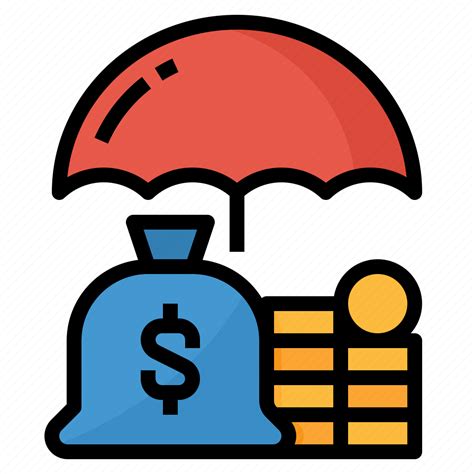Insurance Pay

Insurance, a cornerstone of modern financial planning, plays a pivotal role in safeguarding individuals and businesses against various risks and uncertainties. The concept of insurance, with its rich historical roots, has evolved into a complex yet indispensable system, offering financial protection and peace of mind. Understanding the nuances of insurance payouts is essential for both policyholders and those considering insurance as a potential career path.
The Intricacies of Insurance Payouts

Insurance payouts, or insurance claims, represent the financial compensation an insurance company provides to its policyholders when a covered loss occurs. This process is intricate and involves a series of steps, each crucial to ensuring fair and timely compensation.
The Claims Process
When an insured event takes place, the policyholder must initiate the claims process. This typically involves notifying the insurance company, providing relevant details and documentation, and, in some cases, undergoing an investigation to determine the validity and extent of the claim.
For instance, imagine a scenario where a homeowner's property sustains damage due to a storm. The homeowner would first need to contact their insurance provider, offering a detailed account of the incident and any supporting evidence, such as photographs or repair estimates. The insurance company then assesses the claim, considering factors like the policy coverage, the cause of the damage, and the potential liability.
| Claim Type | Payout Process |
|---|---|
| Property Damage | Investigation, repair or replacement cost calculation, and payout. |
| Health Insurance Claims | Verification of medical records, assessment of treatment costs, and reimbursement. |
| Life Insurance | Policy validation, beneficiary verification, and payout upon the insured's death. |

The complexity of the claims process varies based on the type of insurance and the nature of the claim. While some claims, like a straightforward car accident, may be resolved relatively quickly, others, such as complex medical claims or business interruption claims, can involve extensive investigations and negotiations.
Factors Influencing Payouts
Several factors come into play when determining insurance payouts. These include the specific terms and conditions outlined in the insurance policy, the extent of the loss or damage, and the policyholder’s adherence to the terms of the policy.
Insurance policies often contain detailed descriptions of what is and isn't covered. For example, a homeowner's policy may cover damage caused by storms but exclude damage resulting from floods, requiring a separate flood insurance policy. Understanding these nuances is critical for policyholders to ensure they have the appropriate coverage.
Additionally, the payout amount is influenced by the actual cost of repairs or replacement. In the case of property damage, an adjuster may assess the value of the damaged items or property and determine the appropriate compensation. For health insurance claims, the payout is typically based on the cost of medical treatments, medications, and other related expenses.
The Importance of Timely and Fair Payouts

Insurance payouts serve a dual purpose: providing financial support to policyholders in times of need and maintaining trust in the insurance industry. Timely and fair payouts are critical to ensuring customer satisfaction and the overall stability of the insurance market.
Building Trust and Customer Satisfaction
When policyholders experience a loss, they rely on their insurance provider to deliver on the promise of financial protection. A swift and fair payout process can significantly impact customer satisfaction and loyalty. On the other hand, delays or disputes over claims can lead to dissatisfaction and even legal action.
Consider the example of a small business owner whose shop was damaged in a fire. If the insurance company promptly processes the claim and provides the necessary funds for repairs, the business owner can quickly get back on their feet, minimizing disruption to their operations and maintaining their livelihood. This positive experience can foster long-term loyalty and even lead to word-of-mouth recommendations, enhancing the insurer's reputation.
Regulation and Industry Standards
The insurance industry is highly regulated to protect consumers and maintain financial stability. Regulatory bodies set standards and guidelines for insurance companies, including requirements for timely claim handling and fair practices. Compliance with these regulations is essential to avoid legal consequences and maintain a positive public image.
Moreover, industry-wide initiatives and best practices promote ethical claim handling. Insurance companies often invest in training and technology to streamline the claims process, ensuring efficiency and accuracy. This commitment to continuous improvement enhances the overall customer experience and contributes to the industry's reputation for reliability.
The Future of Insurance Payouts: Technological Advancements
The insurance landscape is evolving, driven by technological innovations that are transforming the way claims are handled. These advancements aim to enhance efficiency, accuracy, and customer satisfaction.
Leveraging Technology for Streamlined Claims
Insurance companies are increasingly adopting digital technologies to streamline the claims process. From mobile apps that allow policyholders to report claims and upload supporting documentation to advanced analytics that facilitate faster claim assessments, technology is playing a pivotal role in improving efficiency.
For example, drone technology is being utilized to assess property damage, providing detailed aerial views that can help adjusters make more accurate assessments. Artificial intelligence (AI) and machine learning algorithms are also being employed to analyze large volumes of data, identify patterns, and predict potential claims, enabling insurers to proactively manage risks.
Improving Customer Experience Through Innovation
Beyond efficiency, technology is enhancing the customer experience. Insurers are leveraging chatbots and virtual assistants to provide real-time support and guidance to policyholders, offering quick answers to common questions and streamlining the claims process. Additionally, blockchain technology is being explored to improve the security and transparency of claim transactions.
The integration of these technologies not only improves operational efficiency but also reduces the potential for errors and disputes, ultimately leading to faster and fairer payouts. As the insurance industry continues to embrace technological advancements, the future of insurance payouts looks increasingly promising, offering a more seamless and customer-centric experience.
Conclusion
Insurance payouts are a critical aspect of the insurance industry, offering financial protection and peace of mind to policyholders. Understanding the claims process, the factors influencing payouts, and the importance of timely and fair settlements is essential for both consumers and industry professionals. With technological advancements revolutionizing the way claims are handled, the future of insurance payouts promises enhanced efficiency, accuracy, and customer satisfaction.
How long does it typically take for an insurance claim to be processed and paid out?
+The time it takes for an insurance claim to be processed and paid out can vary significantly depending on several factors. Simple claims, such as a minor car accident or a straightforward home repair, can often be resolved within a few weeks. However, more complex claims, especially those involving extensive investigations or legal disputes, may take several months or even longer to be finalized. It’s important for policyholders to remain patient and provide all necessary documentation to facilitate the process.
What happens if an insurance company disputes a claim?
+If an insurance company disputes a claim, it typically means they believe the claim is not valid or exceeds the coverage limits outlined in the policy. In such cases, the insurer may request additional information or documentation to support the claim. Policyholders can engage in a dialogue with the insurer to provide further evidence or seek mediation or arbitration if necessary. It’s essential to review the policy terms and conditions to understand the dispute resolution process and any applicable time limits.
Can insurance payouts be affected by policy exclusions or limitations?
+Absolutely. Insurance policies often contain specific exclusions and limitations that can impact payouts. For instance, a homeowner’s policy may exclude damage caused by floods or earthquakes, requiring separate coverage. Similarly, health insurance policies may have limitations on certain treatments or medications. It’s crucial for policyholders to thoroughly review their policies and understand the coverage they have to avoid surprises when filing a claim.



